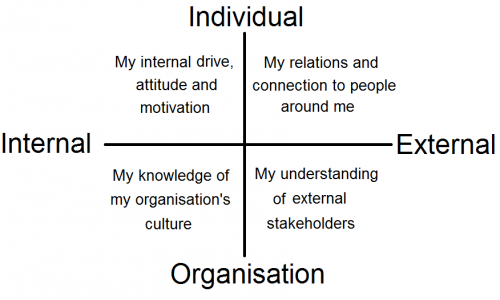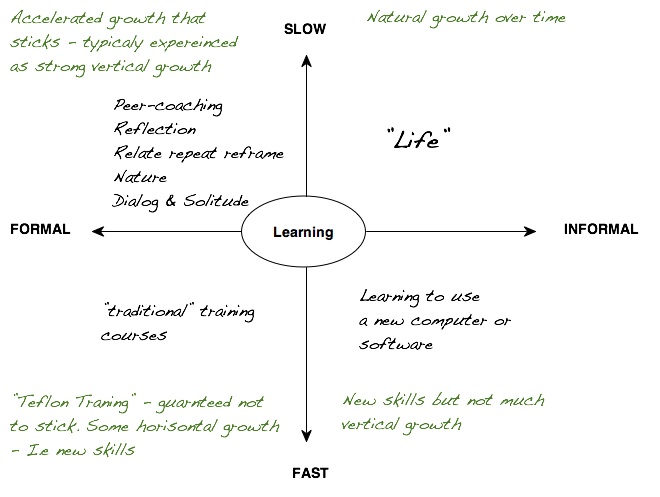
In a previous question, we looked at what value is to a customer, how they calculate it in their mind if they received value or not. In this post, we will look at how and by whom is the value then created?
If we go back to the basic definition of service, then we know that Service = Result – Experience.
The experience part is relatively straightforward. We need to provide a good experience at all the touch points and most reasonably successful service organisations understand that.
We can get back to how to do this in a future post. But what truly separates the great from the good is their understating of the result bit.
If I walk in to a store to purchase a hammer of a certain size and make, and I leave the store with exactly that hammer then it is relatively easy. My primary result was to purchase a hammer and that is what I did.
But what is the result that I am looking for when I have a two hour layover in an airport? Or what is the result that I am looking for when I as the CEO organises an offsite meeting for my top ten managers at a conference center? What is the result I am looking for when I check in to a hotel?
The mediocre service providers assume that it is the primary product that is the result. The bed to sleep in. A conference room with a projector etc. But that is not the point. The hotel bed is the solution to a need, and the need may be a good night sleep. The conference room is the solution to a need that could be about undisturbed workspace with no distractions.
When I say ‘could be’, it is because we can’t be sure. Most of these service needs are highly subjective and individual.
So we have two choices. We can give everybody the standard solution and hope that it covers some or most of their needs. Or we can take pride in discovering what the real result is that they are looking for and deliver a customised solution.
When I explain this during my Service Profit Chain seminars, I often hear grows of protest at this idea: “But we don’t know. How on earth should we know what the need behind a conference room booking is other than they obviously want a conference room? We have hundreds of guests each day, how are we to understand what each and everyone’s different needs are. How are we going to do that?”
It quite simple: Ask!
Initiate a conversation that tries to explore and uncover what the need is behind the request for a product. Just like your doctor does. You don’t go to your doctor and say hey could you give me a box of the blue pills, they were wonderful last time. No, your doctor will investigate, and question and use his intuition and experience in order to determine what he thinks is the real need. Once that is identified, he prescribes the best product to solve the need.
That is exactly what our best service providers do as well. What makes them outstanding at their craft is that they investigate, question and use their experience and intuition in order to understand what the real need is. Once they understand that, then they use their professional expertise and knowledge of their product to propose the best possible solution to exactly that need. And funnily enough, that always creates an exceptionally happy customer. Go figure.
If it is a complex service delivery then it requires a lot of time and effort. If it is a simple service delivery, it’s easier to do. Here is a simple example:
Two people come into our restaurant and ask for a table for two. Seated, we give them the menu and let them know we will be back shortly. We come back. They order. Food arrives. They eat, pay and bye bye. Standard solution, that was the product the client asked for. they were not unhappy you could claim.
Let’s rewind.
Two people come into our restaurant and ask for a table for two. Seated, we give them the menu and ask so have you been here before? Their answer will give us valuable information about what’s next to say (Do they need help in understanding our restaurant concept / menu or do they know it well and need help to learn about new initiatives specials etc.?)
Then, we ask casually: So you look really happy tonight are you celebrating something? With a bit of luck, we get some really valuable information back:
a) Oh no we just escaped from the kids and we are off to a movie (Meaning they are on a limited timeframe and we need to adapt to that.)
b) Yes we are actually. It’s my wife’s birthday today. (Meaning they are here for the evening and they would like it to be special somehow. Just sticking a flare in their dessert is already a much better experience than the standard solution we started with if you get my point.)
A skilled service provider will ensure that they not only have the evening they dreamed of but they will probably also spend more than they would have if we had not had this opportunity to really understand their need. The better we understand the more values we create.
And that brings me to favourite peeve. I am not mad about the expression ‘Up-sell’. It sounds like we are force feeding them more than they need. But I do encourage the service sale, which is the sale you make once you have understood that here is a deeper need than what was originally voiced by the customer. By letting them spend more on achieving their real need, you are giving them fantastic service.
So how is value created? By uncovering the true need: Understanding what is the real result they are looking for and then customising your delivery to fulfill that need in the best possible way.
This blog post is part of a series of answers to frequent questions that I get around the concept of the Service Profit Chain. In future post, we will continue to explore other key points. If you would like the full concept served up in one go, you will find Mike’s book “Best! No need to be cheap if…” HERE.







